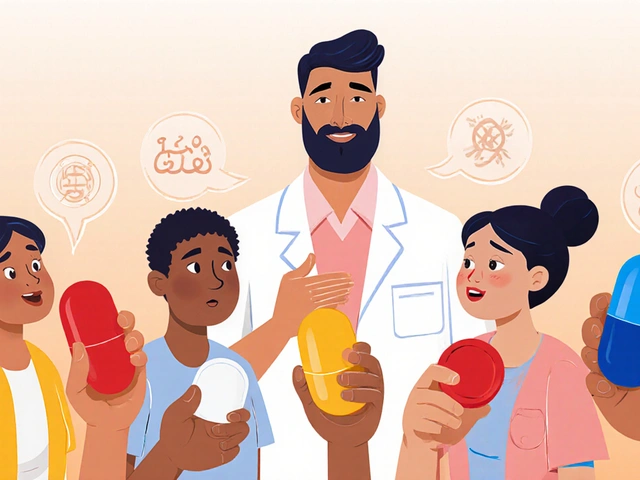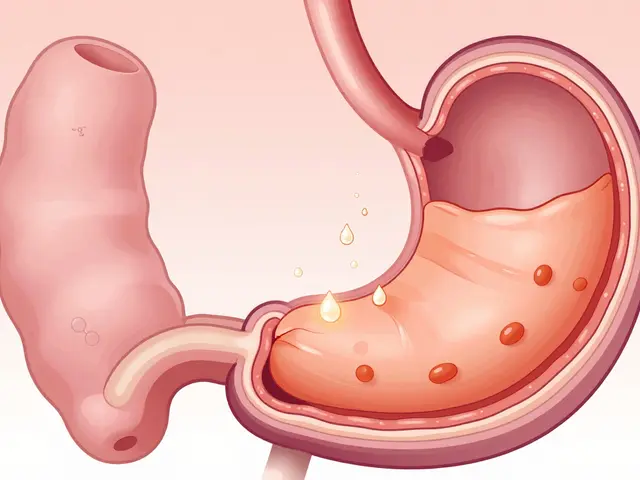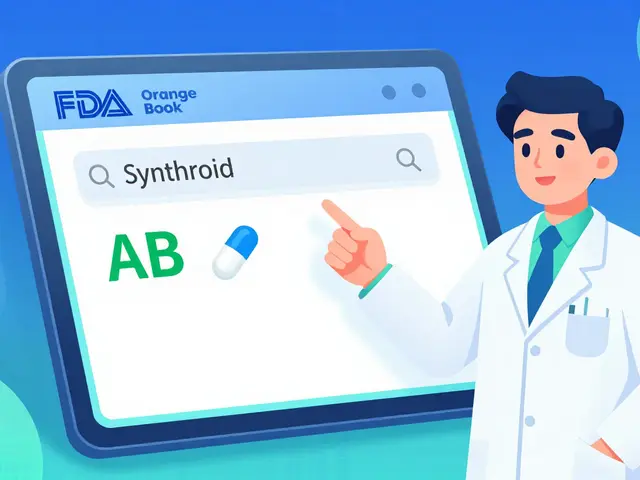Multicultural Perspectives on Generics: How Culture Affects Medication Adherence
November 14 2025Kidney Function: What Your Kidneys Do and What to Watch For
Your kidneys filter about 120–150 quarts of blood every day and keep the fluid, salts, and minerals in balance. They also remove waste, control blood pressure, and make hormones that keep bones and blood healthy. When kidneys slow down, waste builds up and you can feel tired, swollen, or short of breath.
Knowing how kidneys work helps you spot problems early and protect them with simple habits and smart choices about medicines.
How to spot trouble fast
Kidney damage often starts quietly. Watch for these clear signs: less urine or darker urine, foamy urine, swollen ankles or around the eyes, constant fatigue, loss of appetite, and unexplained shortness of breath. If you have high blood pressure or diabetes, get tested regularly — those are the biggest risks for kidney damage.
Common lab checks tell a lot: serum creatinine and estimated glomerular filtration rate (eGFR) show filtering power, while urine albumin checks for protein leakage. Ask your doctor for these tests if you have risk factors or any of the signs above.
Medications, daily habits, and real protection
Some drugs can harm kidneys, especially when used long-term or in high doses. Over-the-counter NSAIDs (ibuprofen, naproxen) can reduce blood flow to the kidneys. Contrast dyes for some scans, certain antibiotics, and high doses of some blood pressure meds need care too. If you buy meds online, always check with your doctor or pharmacist — dosing can change if your kidney function is reduced.
Simple daily steps protect your kidneys: control blood pressure and blood sugar, keep hydrated but don't overdo it, cut down on salt, avoid excessive protein diets unless advised, and limit regular NSAID use. Exercise, quit smoking, and keep a healthy weight — those lower the strain on your kidneys.
If you have chronic conditions, bring a current medication list to every visit. Your doctor may adjust drug doses based on eGFR. For anyone ordering prescriptions online, pick verified pharmacies and confirm dosing for your kidney status before you buy.
When to see a specialist? If eGFR is below 60 for three months, or urine tests show rising protein, ask for a nephrology referral. Sudden drops in urine output, very high potassium, or severe swelling need urgent care.
Small changes add up. Regular tests, better blood pressure and blood sugar control, and smart medication choices keep kidneys doing their job for years. If you’re unsure about a medicine or a test result, talk to your clinician — that’s the fastest way to protect kidney health.
How Canagliflozin Works to Improve Kidney Function in Diabetic Patients
As a diabetic patient, I recently came across Canagliflozin, a medication that works wonders in improving kidney function. This drug belongs to a class of medications called SGLT2 inhibitors, which help to lower blood sugar levels by prompting the kidneys to remove excess sugar from the body through urine. Not only does Canagliflozin help in managing diabetes, but it also reduces the risk of kidney-related complications. This is particularly important for diabetic patients, as we are more prone to kidney issues. Overall, Canagliflozin is an impressive medication that aids in maintaining kidney health while keeping our blood sugar levels in check.
Read More...




